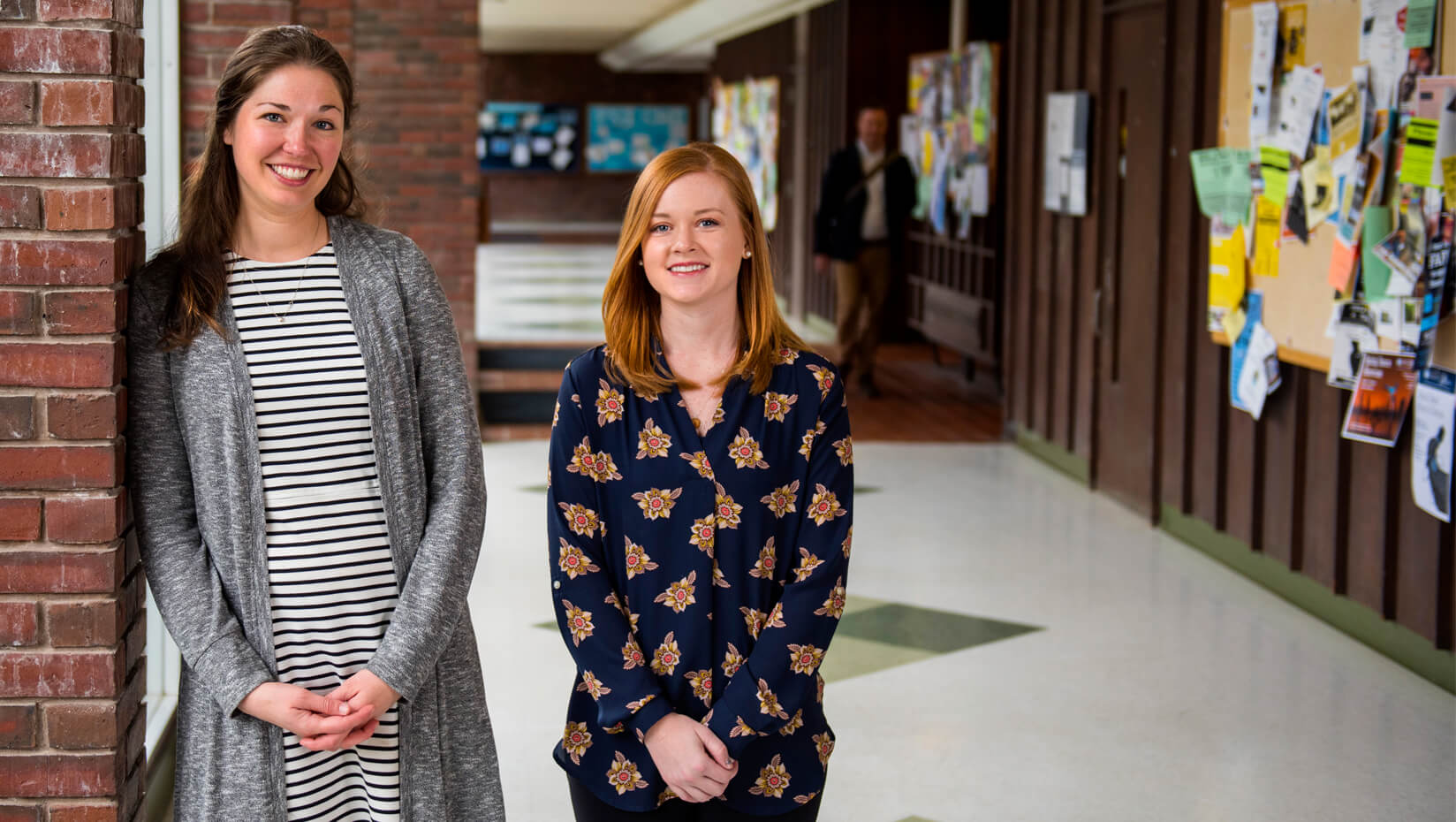
Suicide prevention work the focus of 2016 President’s Research Impact Award
Melissa Jankowski was approaching the parking garage stairwell when she encountered a young man. He spun around and locked eyes with her. Frightened, she hurried to class. But there was something about his distant look that made her determined to search for him and ask if he was all right.
When she returned to the parking garage, he was gone.
Days later, Jankowski heard the news: A 22-year-old student jumped to his death from the facility.
She knew then that she wanted to pursue research on suicide prevention.
“I looked at him and instantly knew something wasn’t right,” Jankowski says of the encounter 6 years ago. “What did I see? Could others see it? Could someone have saved him?”
Jankowski, now a first-year student in the University of Maine Clinical Psychology Doctoral Program, is conducting research with Assistant Professor Rebecca Schwartz-Mette that examines how suicide risk may manifest during at-risk individuals’ interactions with strangers.
While existing research explains risk in the context of established relationships, no known studies apply theories of suicide to interactions with strangers. Understanding how suicide risk can appear in everyday interactions could improve the ability to identify those who need support the most, according to the researchers.
Jankowski received UMaine’s 2016 Presidential Research Impact Award for her work that has particular significance in Maine, where the suicide rate is 20 percent higher than the national average, with one suicide every two days. In rural states, access to mental health care can be challenging, and many individuals go unnoticed until it is too late, says Jankowski, who is from Cassville, Missouri.
She hopes her work will inform clinical practitioners and community members.
